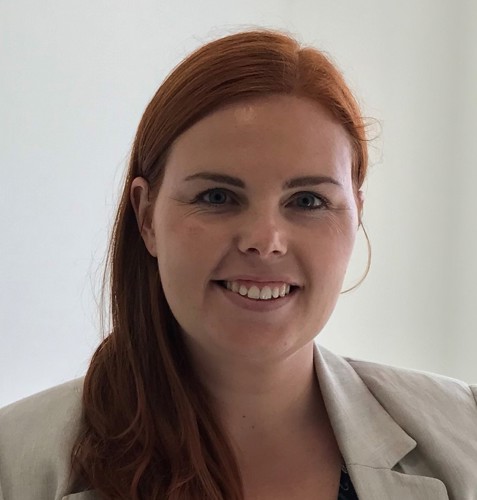Helena Møgelbjerg Ditzel
Department of Oncology

Prognostic Relevance of Geriatric assessment and Onco-geriatric Screening In cancer patients age Seventy or more: A prospective G8 study
The general health of older patients (>=70 years) newly diagnosed with cancer varies greatly; some are fit, some vulnerable, and some even frail. Oncologists traditionally assess patients’ health, with the use of a classification scale, but this method is not sensitive enough to detect whether the older cancer patient can tolerate the purposed cancer treatment.
The purpose of this study is to test a new screening tool, the Geriatric 8 (G8), that we believe, is better at distinguishing between healthy and frail older cancer patients. We wish to determine whether patients who are found frail using the G8, experience poorer quality of life, tolerate their treatment less well, complete their treatment less often, and live shorter than patients who screen healthy. Furthermore, we wish to determine whether the G8’s accuracy can be further improved by adding a physical test, as well as compared it to a modified version of the G8, the mG8. Finally, we wish to explore whether the Barthel Index (BI), a measure of a patient’s functional ability to perform everyday tasks, measured at hospitalization, can predict residual life in geriatric patients with a cancer diagnosis.
From Jun. 1 2020 and 15 months onwards, all patients, age 70 years or more, who are newly referred to the outpatient Oncology Department at OUH, will be screened with a G8 and mG8. The first two months will serve as a pilot study to estimate patient participation rates and improve these by making adjustments in day-to-day procedures. Participants will perform a ’handgrip strength test’, which measures the strength of the forearm muscles, and a ’chair-stand-test’, which tests leg strength and balance. Most older cancer patients have a desire to preserve their quality of life until the end. Therefore, we will examine changes in quality of life, using quality of life questionnaires completed by participants prior to starting cancer treatment and every 3 months for one year, and compare them to initial G8 scores. Through medical records, we will collect data on how patients tolerate their treatment, whether they can complete their treatment, and how long they live. Finally, we will examine registry-based data, collected from all geriatric departments in Denmark, to determine possible associations between BI and residual life.
This PhD will be the first to examine possible associations between the G8 and QoL, and BI and residual lifespan in older cancer patients. It also has the potential to substantiate the mG8, as well as demonstrate the value of the G8 in a large Danish cancer patient population (>1200).
My close personal experience with cancer fuels my enthusiasm for this project, and given my previous cancer research experience focusing on test accuracy at a Harvard University Hospital, USA, I feel I am the obvious candidate to carry out the Ph.D. project. Current research indicates that the G8 is among the most promising tools for the geriatric screening of older cancer patients. We anticipate that this screening tool will assist doctors in identifying frail patients who may benefit from a geriatric assessment with potential health-improving interventions, and whose cancer treatment should be adjusted to better suit the patient’s condition. Furthermore, a previous study has shown that BI is closely linked to the residual life for all older adults, and therefore we intend to investigate whether this also applies to older inpatients with a cancer diagnosis. The results of our Barthel study will be able to guide geriatric doctors in planning the future course of treatment for these patients.
Today, 44% of all cancer patients in Denmark are over the age of 70 at diagnosis and by 2030, around half of all patients are expected to be over the age of 70 at diagnosis. However, due to underrepresentation in clinical trials, there is less evidence to guide treatment decisions for older cancer patients in comparison to younger persons. It is our hope that, through our collaboration with AgeCare and the DCCC Age network, this study will be key in establishing national and international guidelines for the screening of older cancer patients and the closer involvement of geriatrics in cancer treatment in Denmark.
